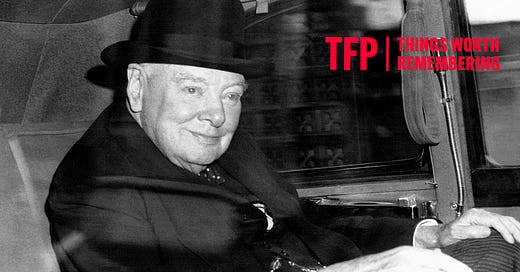
Welcome to Year Two of Douglas Murray’s Sunday column, Things Worth Remembering. For the next 12 months, Douglas will present great speeches from famous orators that he has memorized—and explain why you should, too. To listen to Douglas read from Winston Churchill’s eulogy for Neville Chamberlain, scroll to the end of this piece.
If poetry is the most condensed way to communicate human feeling, speech-making is the oldest, perhaps best-proven way to transmit a specific message.
People often ask me how to get better at public speaking. I tend to offer one piece of advice: listen to, read, or watch great speeches of the past. Just as the only way to become a good writer is to be a good reader, the only way to become a good speaker is to be a good listener.
That is not to say that there aren’t certain rules to public speaking, which I will get to later in this series. But if you study these rules—read, say, your Cicero or Aristotle—then it doesn’t mean you will necessarily be able to perform.
In any event, the main aims of great speaking are to persuade, charm, and move.













